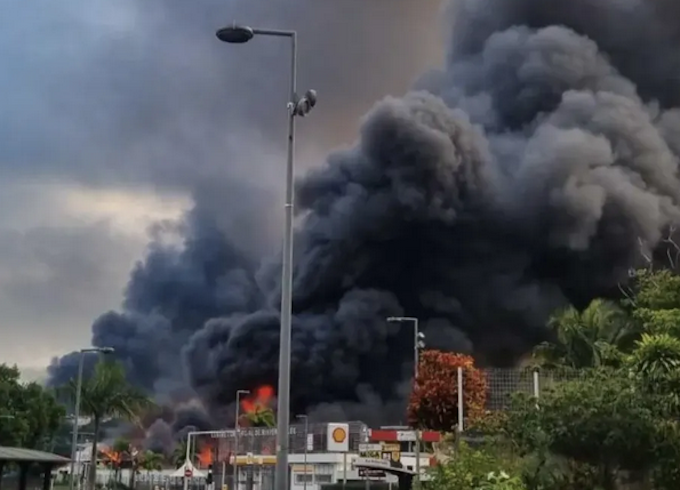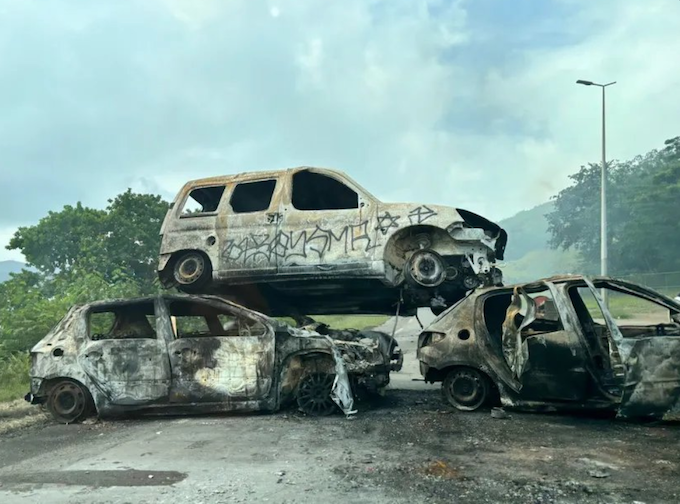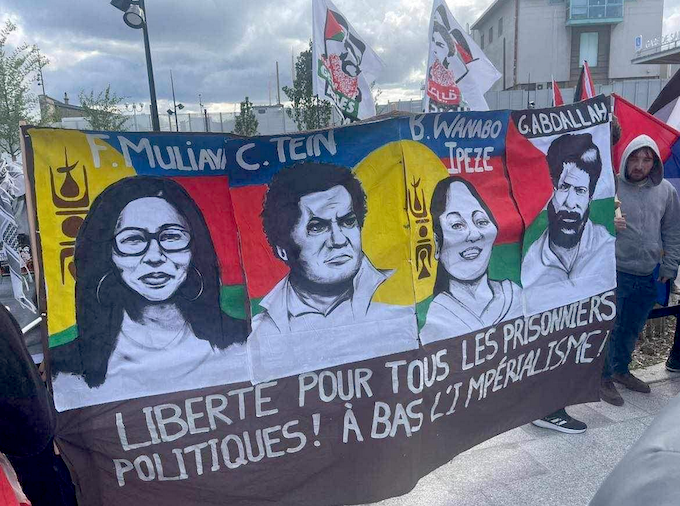
SPECIAL REPORT: By Lydia Lewis, RNZ Pacific presenter/bulletin editor
Stuck in a state of disbelief for months, journalist Coralie Cochin was one of many media personnel who inadvertently put their lives on the line as New Caledonia burned.
“It was very shocking. I don’t know the word in English, you can’t believe what you’re seeing,” Cochin, who works for public broadcaster NC la 1ère, said on the anniversary of the violent and deadly riots today.
She recounted her experience covering the civil unrest that broke out on 13 May 2024, which resulted in 14 deaths and more than NZ$4.2 billion (2.2 billion euros) in damages.
- READ MORE: France tightens security for riots anniversary after aborted Kanaky New Caledonia political talks
- Other Kanaky New Caledonia riots reports
“It was like the country was [at] war. Every[thing] was burning,” Cochin told RNZ Pacific.
The next day, on May 14, Cochin said the environment was hectic. She was being pulled in many directions as she tried to decide which story to tell next.
“We didn’t know where to go [or] what to tell because there were things happening everywhere.”
She drove home trying to dodge burning debris, not knowing that later that evening the situation would get worse.
“The day after, it was completely crazy. There was fire everywhere, and it was like the country was [at] war suddenly. It was very, very shocking.”
Over the weeks that followed, both Cochin and her husband — also a journalist — juggled two children and reporting from the sidelines of violent demonstrations.
“The most shocking period was when we knew that three young people were killed, and then a police officer was killed too.”
She said verifying the deaths was a big task, amid fears far more people had died than had been reported.

‘We were targets’
After days of running on adrenaline and simply getting the job done, Cochin’s colleagues were attacked on the street.
“At the beginning, we were so focused on doing our job that we forgot to be very careful,” she said.
But then,”we were targets, so we had to be very more careful.”
News chiefs decided to send reporters out in unmarked cars with security guards.
They did not have much protective equipment, something that has changed since then.
“We didn’t feel secure [at all] one year ago,” she said.
But after lobbying for better protection as a union representative, her team is more prepared.
She believes local journalists need to be supported with protective equipment, such as helmets and bulletproof vests, for personal protection.
“We really need more to be prepared to that kind of riots because I think those riots will be more and more frequent in the future.”

Social media
She also pointed out that, while journalists are “here to inform people”, social media can make their jobs difficult.
“It is more difficult now with social media because there was so [much] misinformation on social media [at the time of the rioting] that we had to check everything all the time, during the day, during the night . . . ”
She recalled that when she was out on the burning streets speaking with rioters from both sides, they would say to her, “you don’t say the truth” and “why do you not report that?” she would have to explain to then that she would report it, but only once it had been fact-checked.
“And it was sometimes [it was] very difficult, because even with the official authorities didn’t have the answers.”
This article is republished under a community partnership agreement with RNZ.
France preaches one thing and practices another.
France declared a state of emergency in its colony of New Caledonia after an anti-colonial uprising broke out there
New Caledonia has long sought independence, hoping to support itself through mining. The French sent in the… pic.twitter.com/g7RKXKaXNM
— Chay Bowes (@BowesChay) May 16, 2024












































